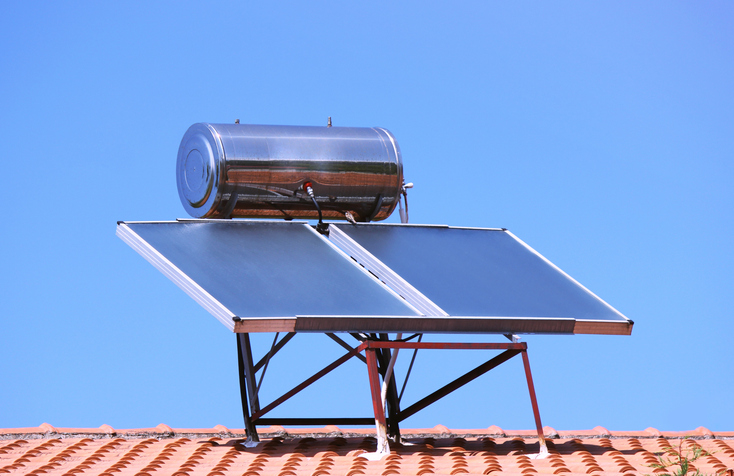Solar water heaters are an increasingly popular solution for homeowners and businesses seeking a more energy-efficient and eco-friendly way to heat water. As traditional heating methods contribute to higher energy bills and environmental degradation, solar water heaters provide a cost-effective and sustainable alternative. This article explores how solar water heaters work, their benefits, types, and considerations for installation and maintenance.

How Solar Water Heaters Work
Solar water heaters operate by capturing the sun’s energy and using it to heat water. The basic components of these systems include solar collectors, a storage tank, and a heat-transfer system. The collectors are usually placed on rooftops or other areas exposed to direct sunlight, where they absorb solar radiation. This heat is transferred to water, which is then stored in an insulated tank until needed.
There are two primary systems: active and passive. Active systems rely on pumps and controls to circulate water or a heat-transfer fluid, while passive systems depend on natural convection to move water through the system. Regardless of the type, solar water heaters significantly reduce the need for conventional energy sources to heat water.
Benefits of Solar Water Heaters
One of the most compelling reasons to invest in solar water heating is the potential for long-term energy savings. By relying on the sun’s energy, users can reduce their reliance on electricity, gas, or oil, leading to substantial reductions in energy bills. Solar water heaters can meet a significant portion of hot water needs, especially in sunny regions, making them a cost-effective solution in the long run.
Solar water heaters are also environmentally friendly. They reduce greenhouse gas emissions and minimize the carbon footprint of homes and businesses. Since they don’t rely on fossil fuels, solar water heaters help reduce pollution and contribute to global efforts to combat climate change.
Additionally, many countries offer tax incentives, rebates, and subsidies to encourage the adoption of solar technologies. This can further reduce the upfront costs of installation, making solar water heaters a more accessible option for homeowners.
Types of Solar Water Heaters
There are two main types of solar water heaters: direct and indirect systems.
Direct systems (also known as open-loop systems) circulate water through solar collectors and into the storage tank, where it is heated directly. These systems are highly efficient but are generally only suitable for regions that do not experience freezing temperatures.
Indirect systems (closed-loop systems) use a heat-transfer fluid, such as antifreeze, that is heated in the collectors and circulated through a heat exchanger to warm the water. This type of system is better suited for colder climates since the fluid prevents freezing in the pipes.
Each system can further be divided into active or passive designs. Active systems use pumps and controls to move water or the heat-transfer fluid through the collectors, making them more efficient but slightly more complex to maintain. Passive systems, on the other hand, rely on natural convection or gravity to circulate the water, making them simpler and less expensive, though they may be less efficient.
Installation Considerations
The effectiveness of a solar water heater depends largely on the location and positioning of the solar collectors. They need to be installed in an area that receives maximum sunlight exposure, typically a south-facing roof in the Northern Hemisphere or a north-facing roof in the Southern Hemisphere. Shading from trees, buildings, or other obstructions can significantly reduce the efficiency of the system.
The climate of the region is another key factor to consider. While solar water heaters work best in sunny regions, even cloudy or temperate climates can benefit from solar heating, especially with the right system design. However, in regions with freezing temperatures, indirect systems or freeze-protected designs are essential to prevent damage to the system during cold weather.
The size of the system should also match the household’s hot water demand. A professional assessment can help determine the right size and type of system for each household, ensuring that the solar water heater can meet the household’s needs without overinvestment.
Maintenance and Longevity
Solar water heaters are generally low-maintenance but require regular inspections to ensure optimal performance. The solar collectors should be kept clean and free of debris, and the system should be checked for leaks or blockages. In active systems, pumps and controls may need periodic servicing.
The heat-transfer fluid in indirect systems should also be checked and replaced according to the manufacturer’s recommendations to prevent corrosion and ensure efficiency. With proper maintenance, solar water heaters can last 20 to 30 years, making them a long-term investment in energy efficiency.
Cost and Return on Investment
While the upfront cost of solar water heaters can be higher than traditional heating systems, the return on investment is significant over time. On average, a solar water heater can save up to 50-80% on water heating costs, depending on the climate and household usage. In regions with ample sunlight, the savings can offset the initial investment within a few years.
Financial incentives, such as government rebates, tax credits, and low-interest financing options, can further reduce the cost of installation. Homeowners should explore available incentives in their region to make the most of their solar water heater investment.
Conclusion
Solar water heaters offer a sustainable and cost-effective solution to the growing energy demands of households and businesses. By harnessing the power of the sun, these systems reduce reliance on conventional energy sources, lower utility bills, and contribute to a greener planet. With various system options available, suitable for different climates and household needs, solar water heaters are a versatile and valuable addition to any home. Proper installation and maintenance ensure long-term efficiency, making solar water heating a smart choice for those looking to reduce their environmental impact and save on energy costs.

